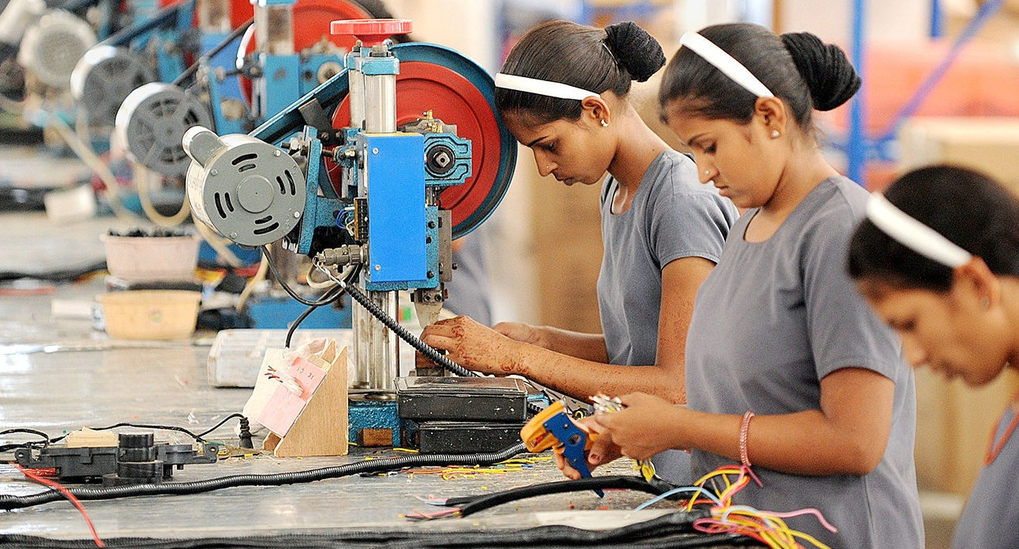 |
| Currently, Vietnam is the only Southeast Asian country that appears in the group of 15 highest gender imbalance countries in the world. (Photo: Zing News) |
Currently, Vietnam is the only Southeast Asian country that appears in the group of 15 highest gender imbalance countries in the world. The latest survey on Vietnam’s population shows that babies are born in the proportion of 111.5 boys per 100 girls.
It is forecasted that by 2030, Vietnam’s population will reach 104 million, increasing more than 8 million compared to the present. However, according to the estimates by the United Nations Population Fund, about 40,800 girls will not have a chance of being born each year due to prenatal gender screening.
 |
| Gender imbalance negatively affects the structure of the workforce. (Photo: Zing News) |
Males to face difficulties in finding partners
Many sociologists estimate that by 2050, Vietnam will have a surplus of at least 2.3 million men. This figure may even reach 4.3 million if there are no control policies, which means that the majority of male adults can not find a female partner to marry.
This situation is currently happening in a number of countries around the world, especially China -where a serious gender gap is recorded. The United Nations estimates that the current ratio of men to women in China is 106.2 men per 100 women, resulting in the fact that the majority of men consider finding it nearly impossible to find a female partner. It is forecast that by 2030, about one-third of the men in their 30s in this country will not be able to marry. As a result, marriage gradually loses its inherent meaning and become a burden for both genders.
Gender imbalance also negatively affects the structure of the workforce. To be specific, the human resource market will have a serious shortage of female workers in industries that require ingenuity, such as textiles, preschool & kindergarten, handcraft… At the same time, the unemployment rate of male may increase due to the fierce competition in pro-male professions. As a result, the change in the gender structure in the labor market worsens the nation’s gender inequality.
 |
| Each year, tens of thousands of women and girls are tricked into being trafficked to countries that are “in lack of wives”. (Photo: Zing News) |
“Brides trafficking” becomes new challenge
Each year, tens of thousands of women and girls are tricked into being trafficked to countries that are “in lack of wives” by the fake promises of having stable, well-paid jobs in foreign countries by traffickers. They are even sold by their own family members for dowry.
China and India are the main import markets for brides. Chinese men normally have to pay a fee of between $ 10,000 and $ 15,000 for a broker who then provides them with a foreign woman. In which, 1,000-3,000 USD is the “dowry” given to the bride’s family. In India, the price needed to “buy” a bride is even cheaper, only about 500 USD.
Shafiq R. Khan, the founder of the anti-trafficking charity Empower People, says brides who are bought in are often faced with discrimination and abuse in their husband’s family. “Normally, those who spend money to buy a bride should respect the woman, but in fact, they do not. Instead, they look down on and insult the brides, calling the victims re-purchased items,” he said.
Even when society evolves, the “thirst for a son” phenomenon still exists. Many families are willing to spend money to count on modern technology to select and retain only male-pregnant fetuses. This action of choosing the sex of the fetus seriously worsens gender imbalance. Since ancient times, generations of Asian families have thought that having a daughter is a “bad business” as they have to take care of their husband’s families instead of their own after marriage.
Sadly, many parents even look for opportunities to sell their daughters to earn money. “Many families count on their daughters to bring ‘profits’. The more beautiful and young the women are, the higher price they get when being sold.” said Chou Bun Eng, vice-chairman of the Cambodia Counter-Trafficking committee.



